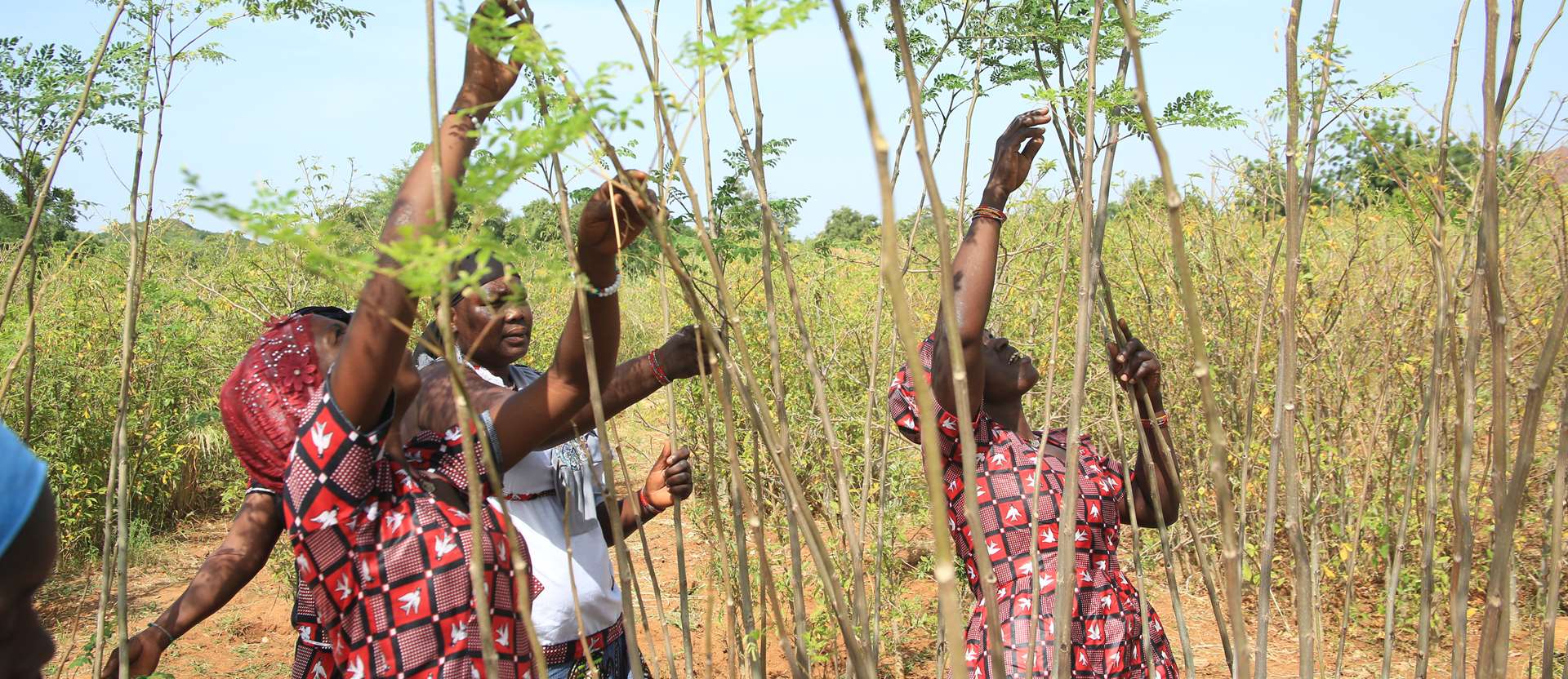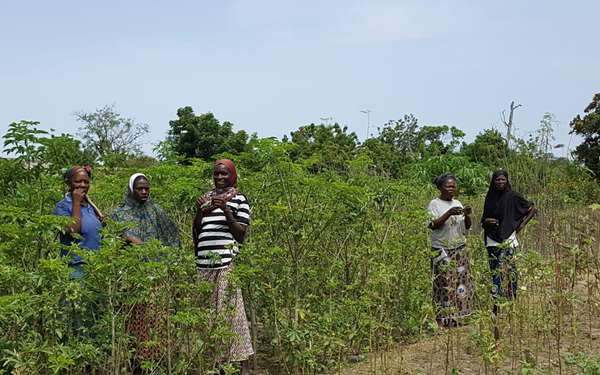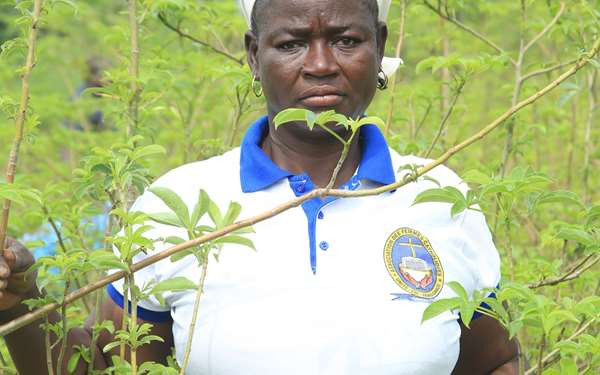
International Day of Forests: Why Planting Trees is Key to Better Health
21st March 2023Think of the term ‘super food’ and several things might come to mind—salmon, spinach, and broccoli, to name a few. But did you know a vital source of nutrition for lots of people comes in the form of trees, and not just the fruits and nuts, but the leaves themselves? On International Day of Forests, we celebrate the lesser-known ‘super-trees’ – nutritious trees that are packed with health benefits, helping to improve the well-being of communities living on the frontlines of the climate crisis.
International Day of Forests 2023 takes place on the 21st of March. It’s a time to remember the crucial role that forests and trees play in the health of the planet.
Besides helping to fight against the effects of climate change, trees offer a vital source of nutritious food, which is full of medicinal and health benefits.
By planting nutrition gardens and growing trees with medicinal benefits, people are working together to improve the health of some of the world's most vulnerable communities.
Nutrition as the key to better health
Tree Aid’s work with communities across the Sahel puts nutrition at the heart of building better health. Recent studies have shown the important role food plays in protecting people’s immune systems. Eating a diet that is filled with nourishing antioxidants has been shown to help fight against cardiovascular disease, as well as boost natural immunity to disease.
This is where Tree Aid’s nutrition gardens are making a vital impact. These are small plots of land used by villages, and are dedicated to planting fast-growing and nutritious ‘super trees.’


The super trees with medicinal benefits
One of the magical ‘super trees’ being planted is the moringa, which can be ready to eat within three months of planting. The leaves from these trees are packed with different health benefits, such as protein and vitamin C. Did you know that just 100g of moringa leaves contain as much protein as an egg, as much calcium as a glass of milk, and as much iron as a 200g beef steak?
These amazing leaves also hold large amounts of antioxidants, which have been shown to help fight infections, lower blood pressure, and improve heart health. That’s why the ‘miracle moringa’ is the perfect choice for Tree Aid’s nutrition garden projects across the drylands of Africa.
Doli’s story:
Doli is a market gardener and farmer living in Sapouy, Burkina Faso. Before joining the project, Doli used to struggle to find food that was both nutritious and affordable.
Sometimes, devastating floods or periods of drought would mean Doli had to travel to neighbouring Ghana to find ingredients to eat and sell at her local market. But working with Tree Aid and her community to establish a nutrition garden, she now has access to a rich and varied diet and has seen a significant improvement in her health.
Every morning, Doli eats the moringa leaves to manage her high blood pressure

It's not just Doli who has benefitted from Tree Aid's training. People across the countries where we work now have the skills and tools they need to grow trees and establish their own sustainable food sources. For Doli, forming a closer bond with her community has been an important part of the project and has helped her sense of belonging.